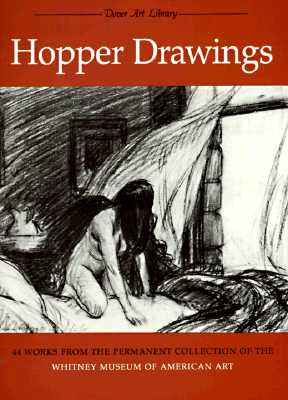
description
ce in twentieth-century American art. In his scenes of urban and rural life -- canvases that reveal his rare, highly focused technical accomplishment and his deep psychological penetration -- he created indelible images that often convey the loneliness of persons within their environment. Highly individual, instantly recognizable, his works are among the most esteemed in collections of American art.
The Whitney Museum of American Art is the biggest repository of works by Edward Hopper. In its collection are a large number of Hopper drawings, powerful works that teach us not only about Hopper's technique and vision but also about the art of drawing itself. This book presents 44 major Hopper drawings, executed in crayon, charcoal, pencil, and other primarily monochromatic media, most of them reproduced directly from originals in the museum's collection. Some of these compelling works are studies for paintings. Many reveal familiar Hopper territory: Manhattan streets, a lighthouse on the Atlantic seacoast, the rural Northeast, and more.
This inexpensive edition offers a wonderful opportunity for artists and art lovers to study the unique range and evocative power of Hopper's draftsmanship. Those mastering and refining their drawing skills will discover in these pages a rich source of inspiration and instruction.
The Whitney Museum of American Art is the biggest repository of works by Edward Hopper. In its collection are a large number of Hopper drawings, powerful works that teach us not only about Hopper's technique and vision but also about the art of drawing itself. This book presents 44 major Hopper drawings, executed in crayon, charcoal, pencil, and other primarily monochromatic media, most of them reproduced directly from originals in the museum's collection. Some of these compelling works are studies for paintings. Many reveal familiar Hopper territory: Manhattan streets, a lighthouse on the Atlantic seacoast, the rural Northeast, and more.
This inexpensive edition offers a wonderful opportunity for artists and art lovers to study the unique range and evocative power of Hopper's draftsmanship. Those mastering and refining their drawing skills will discover in these pages a rich source of inspiration and instruction.
member goods
No member items were found under this heading.
Return Policy
All sales are final
Shipping
No special shipping considerations available.
Shipping fees determined at checkout.







